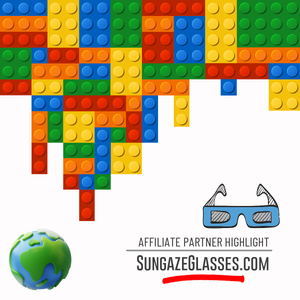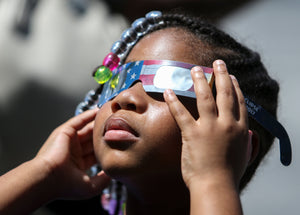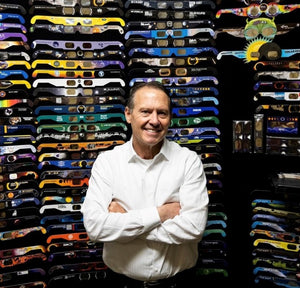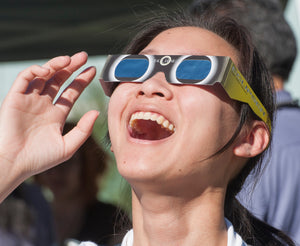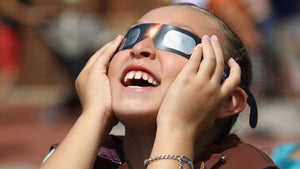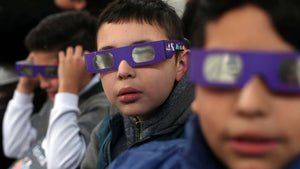Myths About Glasses For A Solar Eclipse

There are a lot of myths related to solar eclipses, some of them dating back centuries in time. In ancient civilizations across the world, a solar eclipse was typically seen a harbinger of a disaster of some sort. These cultures often associated with the darkening of the sky, or near-total darkness in the middle of the day as the sign of vengefulness in the gods, the presence of demons or even the swallowing of the Earth or the Sun in some type of an apocalyptic event.
Today, of course, we recognized the scientific reasons behind the darkening of the sky as the passage of the Moon between the Earth and the Sun. Depending on the path of the celestial bodies and your location on Earth, you may see a full eclipse, a partial eclipse, or an annular eclipse. A partial eclipse has the Moon partially covering the sun, while an annular eclipse has the Moon covering the center of the Sun but leaving the edges visible.
In addition to myths and superstitions about an eclipse, there is also a lot of misinformation about the right types of glasses for a solar eclipse. We believe in providing our customers with the facts, so here are some common myths about protective eyewear, and the truth behind them.
Myth: You Need to Wear Eclipse Glasses during the Entire Event
It is critical for the safety of your eyes to wear our ISO 12312-2 and CE certified glasses for a solar eclipse when looking directly at or near the sun. However, when the eclipse reaches totality (when the sun is completely covered by the moon) it is okay to remove your eclipse glasses. In fact, if you were to try to view the eclipse during totality while still wearing ISO 12312-2 and CE certified glasses, you would not be able to see much at all!
Myth: Any Dark Glasses Protect My Eyes When Viewing the Eclipse
To prevent serious eye injury, use solar eclipse glasses with specialized filters, which are a thousand times darker than regular sunglasses, when viewing partial phases. You can only wear sunglasses when the moon completely blocks off the sun. This is the time it's safe to also remove your eclipse glasses. However, you need to put on your special eyewear as soon as you see a little sun reappearing. We recommend checking the time and duration of the total solar eclipse to know when to put the glasses back on.
Myth: Regular 3D Glasses Offer Protection
Regular 3D glasses may have darkened lenses, but solar eclipse glasses have special-purpose solar filters that comply with the ISO 12312-2 international standard. Solar viewers need to meet this standard to prevent solar retinopathy. Note that even slight exposure to the sun during partial phases can damage your eyes, which is why you need special eclipse glasses, not regular 3D glasses or sunglasses. You can't use a telescope or a camera, either, since they don't have special filters made for viewing partial eclipse phases.
Myth: Stacking Multiple Pairs of Sunglasses Help Protect My Eyes
We recommend proper eye protection when viewing the solar eclipse. It's not advisable to use multiple pairs of sunglasses when viewing the sun before and after totality. Buy solar eclipse glasses only, and ensure you purchase them from a trusted store.
Myth: It Is Safe to Use Sunglasses or Welder’s Glass to View an Eclipse
There are no standard sunglasses on the market that are safe to use to watch a solar eclipse. All of our glasses for a solar eclipse block out 99.999% of visible light, which would make the impossible to use as sunglasses as you would have no visibility. Due to their very dark nature, there is a commonly held misconception that welder's glass/helmets can be used to safely view an eclipse. In reality, there are simply too many variables that can make welder’s glass unsafe, and that could cause eye damage if used to look at the sun. You should instead stick to eyewear that has been tested to specifically view the sun.
You can rely on one of our many glasses for a solar eclipse to make sure you stay safe during the event! They are lightweight, comfortable, and easy to wear, plus they offer the safety levels recommended by NASA.
To learn more about our eclipse glasses, including customization options, get in touch with our staff at 1-800-767-8427.
- Alexander Risse
